What’s a brand?
A brand is a product, service, or concept that is distinguished from others and is easily communicated and marketed. It’s more than just a company’s name or logo, but rather the overall impression that a product or business evokes in consumers, investors, employees, and the media.
(Thanks, Perplexity)
I prefer this definition:
“Your brand is what people say about you when you’re not in the room”
Jeff Bezos
It’s what someone says to finish this sentence:
“Use AshdownJones because__________________”
A brand is many things to many people and ultimately, it can be the difference between someone choosing your agency, or your competitor’s.

Brand elements you need to tick off
1. Your brand name: you may already have a brand name you feel suits your current market, but will it help you break into, or dominate, your local high-value home market? These brands tend to be names – think Savills, Knight Frank, Strutt & Parker – and not more generic words like “Red Brick Properties”, “Abode” or “City Home”.
2. Your logo: this is the way your brand looks when people see your brand name. High-value brands have simple, elegant designs. Think ‘Boss’, ‘White Company’ and ‘Tumi’.
If you’re using symbols, go for classic icons that resonate with your brand’s story and values. Keys and house iconography are too obvious, so avoid them! Check that the logo you choose is versatile, and that it looks good on for sale signs, letterheads and your website. Some shapes may look great but don’t transition easily to all formats.
https://99designs.co.uk/ is a great resource for logo creation at reasonable cost.
3. Colour palette: Specific colours that convey the brand’s personality and evoke emotional responses, helping to create a visual identity. If you look at high-value brands, you’ll see colours tend to be more muted and conservative. Tiffany’s blue, Harrods’ green. Compare these to the budget brand colours like Easyjet’s orange, or the pink and orange of Dunkin’ Donuts.
4. Imagery: The photos you use will portray your brand values to your audience, so choose them carefully. Using internal images of beautifully styled homes is safer than using external images of homes that may not appeal to your target market. For example, if you only have images of three-bed semis, you won’t attract the £1 million-plus homes you really want. By showing only internal images on your website and in your marketing, you will have a broader appeal.
If you want to create and establish a strong and consistent brand, you’ll need to produce a brand guideline document. As well as ensuring visual consistency, having a brand ‘bible’ helps you to portray and maintain a professional image. Presenting a polished and unified front enhances your brand’s reputation and makes sure it is easily recognisable.
Your brand guideline document checklist:
☐ Brand Overview
Mission statement, vision statement, and core values.
☐ Logo Usage
Primary logo design, variations, clear space requirements, and incorrect usage examples.
☐ Colour Palette
Primary and secondary colour palettes with HEX, RGB, and CMYK values and/or Pantone references
☐ Typography
Primary and secondary typefaces, including usage guidelines for headings and body text.
☐ Imagery
Photography style, image guidelines, and iconography style.
☐ Brand Voice and Tone
Description of brand personality and writing style guidelines.
☐ Digital Presence
Website design elements and social media profile standards.
☐ Marketing Materials
Templates for business cards, brochures, and social media graphics.
Branding to Attract High-value Homes
Firstly, what is a high value home to you?
It’s not only geographic but also subjective. In our agency, AshdownJones, it means about the top 20% of the market, in terms of value. We use council tax bands to get specific on exactly which homes we want to attract.
Here are our approximate council tax band values:

If you’re in a less expensive area, eg an urban area with lots of sub-£100k terraces, your bands may be lower. Whilst if you’re based in London or Sandbanks, you may need to double, treble or quadruple these figures.
Data
Do your research, using this website: https://www.gov.uk/council-tax-bands
And also this website, which has a wealth of information about how many homes are in each postcode and much more besides: https://www.doogal.co.uk/
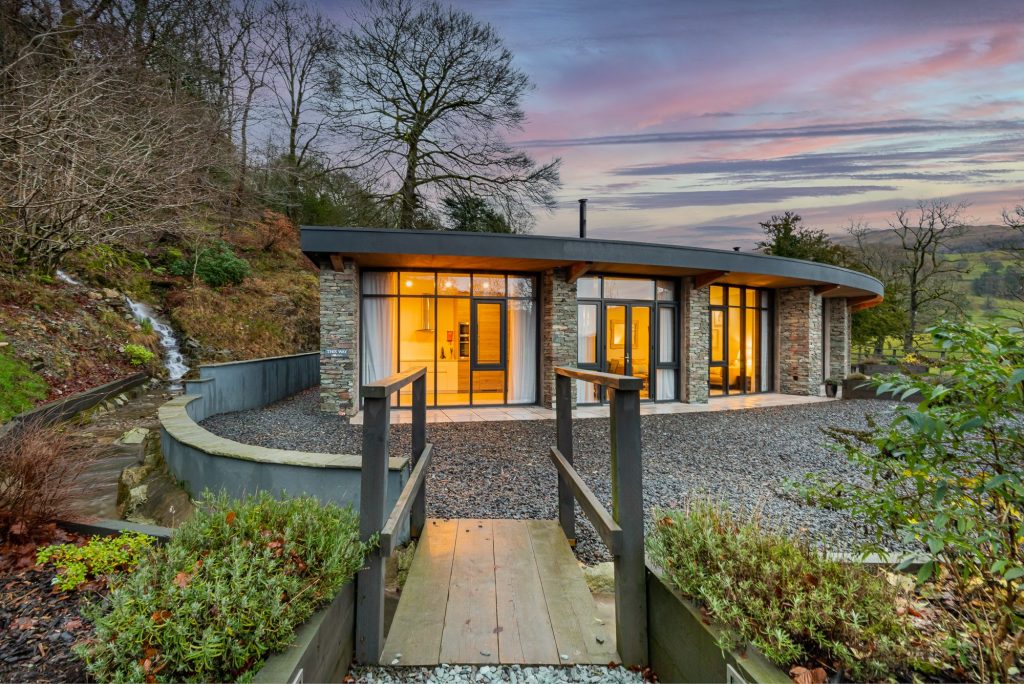
Three key principles
Once you know which council tax bands you want to target, there are three key principles to bear in mind:
1. It’s almost impossible to ‘stretch’ a brand. You can’t be the go-to agent for terraces and also for large barn conversions. Pick your market and focus on it, relentlessly.
2. If your service isn’t substantially different from that of your competitors, (be honest with yourself here), all that’s going to stand out is your marketing – both your agency marketing, and your property marketing.
3. Marketing is so much more effective if you and your clients all know the kinds of homes you specialise in selling. Effectiveness means that marketing to those clients will be far cheaper than trying to throw marketing mud at a wall and see if it sticks.
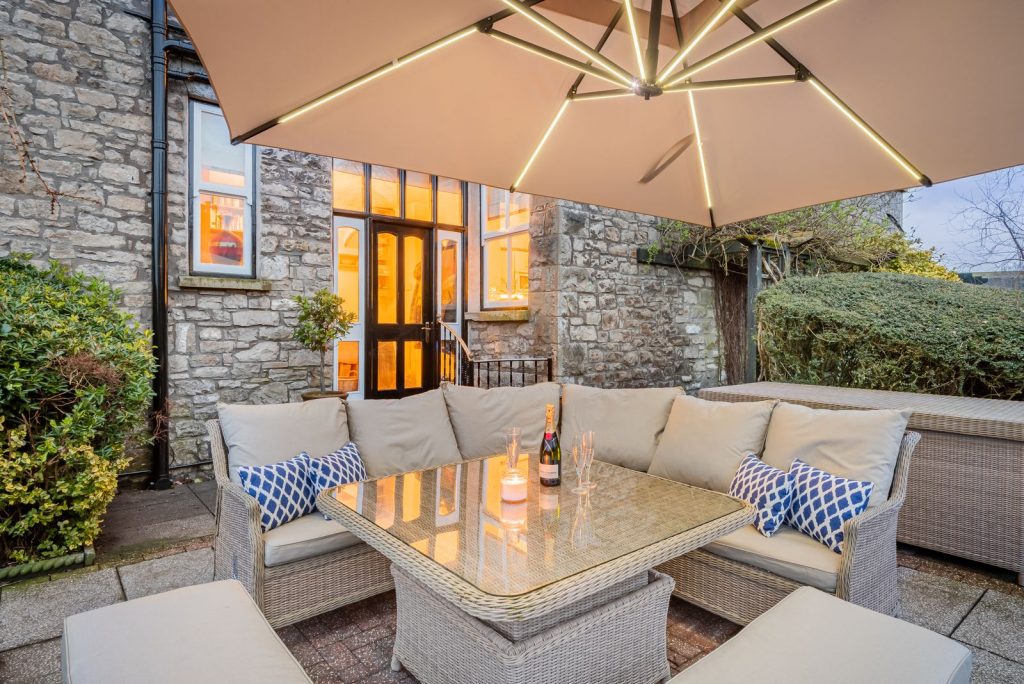
Brand strategy to help you break into the high-value home market
Here are four options to help you decide on a strategy to get into high-value homes, the consequences of each. It’s a biased list, we confess, because we’ve only really found a couple of these to be successful, with the hundreds of agents we’ve worked with. We’ll let you work out which ones….
OPTION 1 – The Brand Stretch Strategy
Stretching your existing brand to attract high value homeowners through your current brand, perhaps with an increased service offering, and keeping your existing low- to mid-range properties.
Pros: you keep your existing brand awareness and bread-and-butter revenue.
Cons: it’s almost impossible to stretch a brand.
Been there, done that: Purplebricks. Whilst you might consider PB a low-value brand, currently they are listing two homes at £4 million and above. On the other hand, they are listing dozens of properties at up to £50,000. However, they do have deeper pockets than any of us. Brand stretching is incredibly expensive.
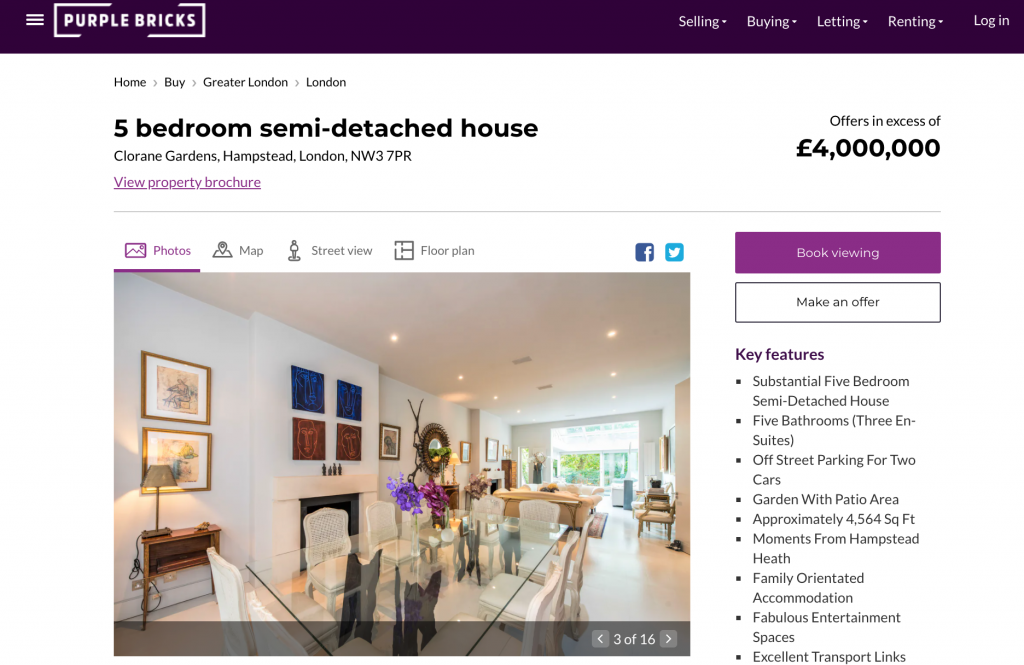
OPTION 2: The Start-from-Scratch Strategy
Ditch your current brand and start again from ground zero.
Pros: you have a clean slate, with no brand ‘baggage’.
Cons: could be considered a waste of your previous brand work and brand equity. You’re also starting from zero in an area of the market where you are unknown and unproven.
Been there, done that: One Stop Property Solutions became Shrigley Rose, a beautifully upmarket brand that high-value homeowners love, now dominating the premium property market in Cheadle Hulme and surrounds.
OPTION 3: The Reach Strategy
Move your brand more upmarket by reaching towards the high-value homes, and deliberately moving away from the low- and perhaps the mid-range properties too.
Pros: you get to keep your brand awareness and equity.
Cons: it’s very hard to lose your brand baggage and get your local audience to start seeing you in a different way.
Been there, done that: Stowhill Estates, Oxfordshire. Already a beautiful brand, Lucy and Michael Joerin’s marketing just wasn’t getting them into the homes they most wanted to list. Now they’ve honed their marketing strategy and have a gorgeous portfolio they can be proud of, with most homes over £1 million, at a 1.75% fee.
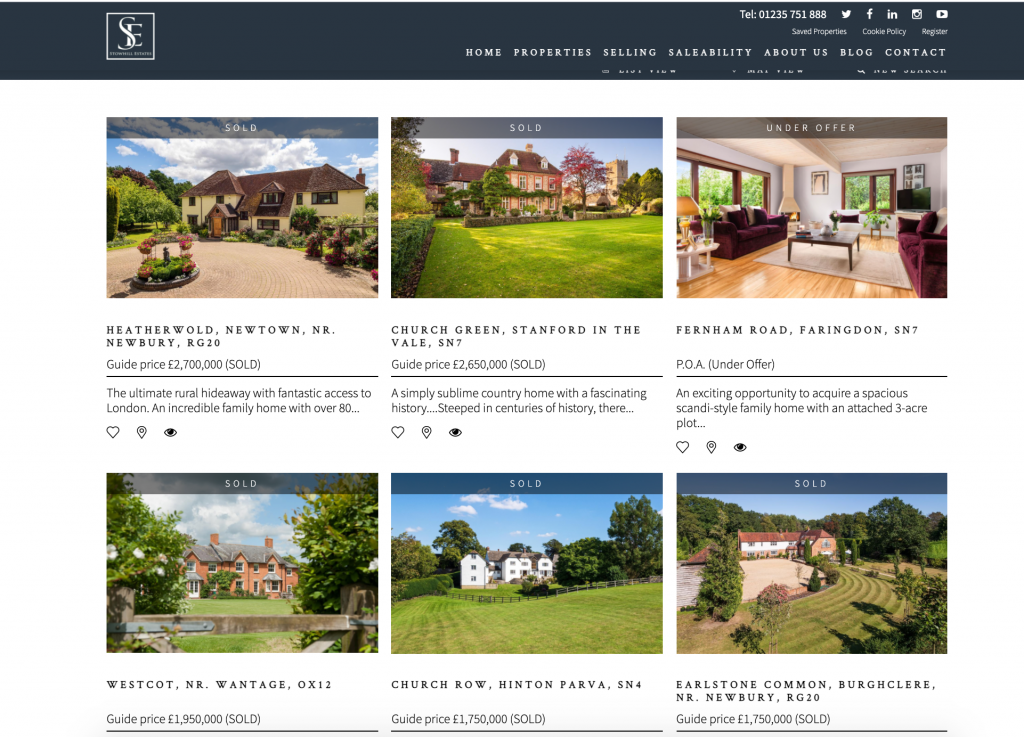
OPTION 4: The ‘Plus-Brand’ Strategy
Create an additional brand to complement your current brand, so that you create differentiation to justify your claims you can sell high-value homes.
Pros: you keep your bread-and-butter revenue and at the same time gain a new prestigious brand.
Cons: you’ll have to work hard to convince your audience you are capable of successfully selling high value homes. Some of your staff may not be appropriate for your high value brand. Shared premises can be confusing to clients.
Been there, done that: Enfields and Enfields Luxe, Pontefract. Owner Chris Heaps has successfully launched his Luxe brand to list some prestige homes. A great case study of how to add a luxury brand.
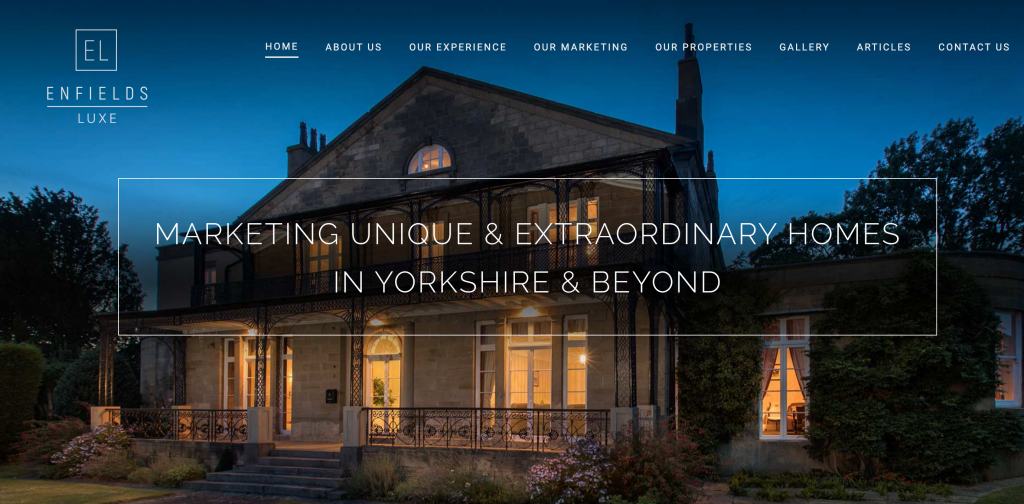
Branding can feel like a minefield, but don’t worry – we’re here to help make it a fun and enjoyable process for you!
When you’re ready, here are 3 ways we can help you:
- Reach out for a call with Sam – choose from three different calls to help you overcome your specific challenges. All free and without strings. Grab a coffee and let’s get to work.
- Come and spend the day with Phil and me, at AshdownJones’ HQ, in our beautiful Lake District. Meet the team, check out our systems and marketing, and enjoy meeting like-minded (non-competing) agency owners. We’ll even put on lunch! Book your place here.
- Join our Facebook community of super-ambitious independent agents.
Hope to catch up with you soon and find out how you’re growing your business!
Till then,
Sam (and Phil)



